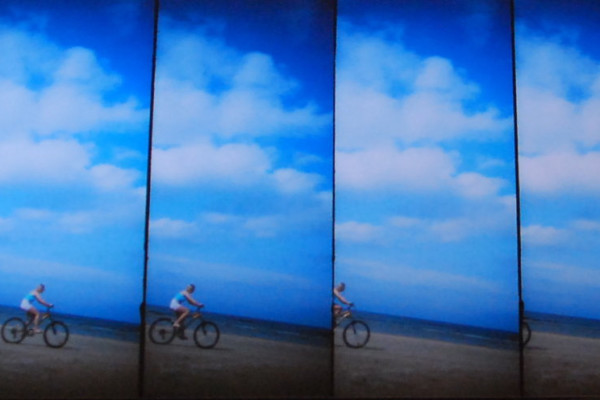Luke has this idea: he’s going to throw all his childhood stuff into the ocean. No, he’s going to burn it—one big flaming pile. Or dump it off a cliff, drop it from a flying helicopter. He’s going to get rid of it, no question, but what would make for the best shot?
“Also,” he adds, “can I use your things too?”
This he asks me while we’re at the beach. The tide has receded, exposing a muddy lip of damp sand. It’s just us, thank God. This is his master’s thesis, he explains. It can’t be some cheap stunt.
I think, those are exactly the words.
Back in high school in Vermont, Luke was the only other gay person I knew, or, I thought I knew. But we’re grown now—“forty-somethings” he’s started saying, in that uncomfortably ambiguous way. We’ve been with too many feckless men, talked about giving up too much to be doing this. We’re too old to be burning our shit or littering in the ocean.
“Or,” Luke asks, “are we just old enough?”
“Too old,” I say. I draw the vague outline of a mermaid’s tail in the sand.
“What’s that?” he asks.
“A cock,” I say.
“It doesn’t look like a cock.”
“Sure it does.”
“Anyway,” he says, “I think it’d be good for us. Healthy.”
This gets me: Luke talking about healthy. Even before he got sick, he was the kind of guy to get up at three in the morning and drive two hours to “say hi” to a man he was dating, the kind of guy who lied to strangers about where he was from (“We have coconuts just like these in Bora Bora.” “Sir, these are jackfruit.”). He believed, and still believes, if I’m seeing him right, that things will turn out well if only you follow your instinct, your dumb, hurt heart.
“That doesn’t sound healthy,” I say.
“We hated that part of our life, right?”
“Maybe,” I say. “I forget.”
“We did, we hated it.” He draws a pair of balls on my mermaid tail.
There is a pause. I consider the facts of my circumstance: I am here with Luke because he finally called me; I did not hate my childhood; I think a lot of gay people say that because they change significantly in their formative years; change is difficult; I have no one else to be around; at this moment, my ex is probably fucking my landlord. I consider that I probably look sad, and then that it might be the kind of sad Luke is bent on capturing in his photos.
“You look sad,” he says.
“A beautiful kind of sad?” I ask. “I get that a lot.”
“No, just like, tissues-sad.”
I laugh and run a hand over the mermaid-cock, blurring the image. I redraw it. I am not a beautiful kind of sad, though I used to be, I think. I just realized it too late. There is a whole population of people, I know now, who have realized they were once attractive too late. Luke is not among them.
I speak to interrupt my own thoughts. “I mean, so this is your project. Which are you gonna do?”
“I’m thinking ocean,” he says. I can sense him spreading out on the sand, relaxing. “I mean, have everything floating out, you know? Maybe at sunset. Nice light.”
“And you’re not going to collect it?”
“Nope.”
“So you’re going to take these photos and then, like, run away.”
“I’m thinking some of the kids will keep some stuff, you know?” Something in the water leaps, then pops back in.
“Anyway, yeah. I mean, it’s my project.”
“It’s also illegal, right?”
We sit for a while on the sand, which is cool to the touch. When the mosquitoes come, we stand and walk to the shore. We can’t see where we’re going, which is part of the thrill, he tells me. We follow the sound of the calm surf lapping against the rocks. The moon is barely visible, a light curve in the sky. For a moment I think, I could just stay here. I could let him explain the shot—what its edges will be lost to, the significance of a sunset, or a sunrise. I could let him tell me what I already know: He’s thinking of moving far away. He wants to be somewhere people say “y’all” and mean it. He missed me, and have I missed him?
The night is still. I can hear the wind off the waves, the distant call of bells. When we take that first step into the water, he says it’s not so bad, and at first I think he’s talking about his life.
—
Peter Kispert’s writing has appeared or is forthcoming in Slice Magazine, Colorado Review, The Baltimore Review, Sou’wester, South Dakota Review, The New York Daily News, and other journals. Two of his stories were nominated for inclusion in next year’s Pushcart anthology, and one of his McSweeney’s Internet Tendency pieces was recently recommended by The New Yorker. He is an editorial assistant with Electric Literature‘s Recommended Reading. For more or to get in touch, visit www.peterkispert.com and follow him on Twitter: @PeterKispert.
—
Featured Image photograph by E.B. Bartels, www.ebbartels.com.



